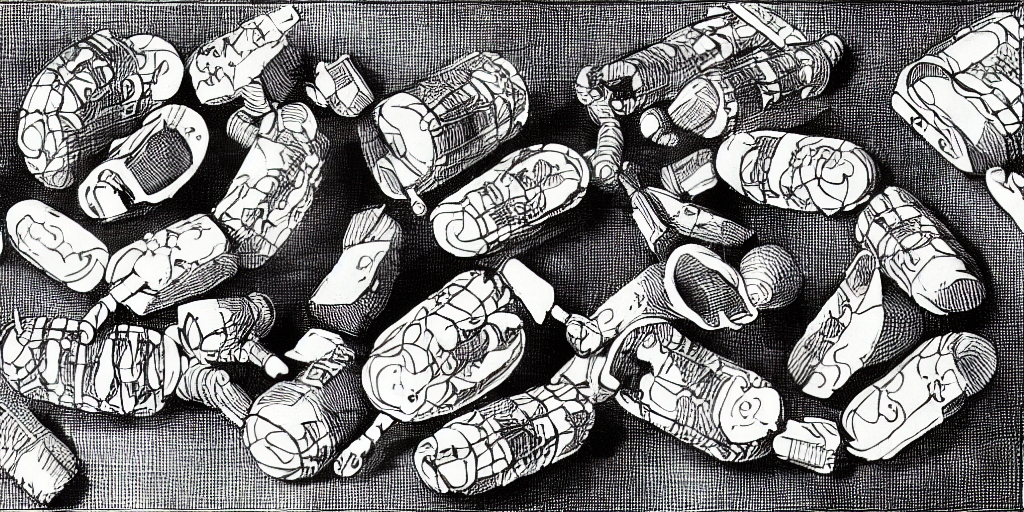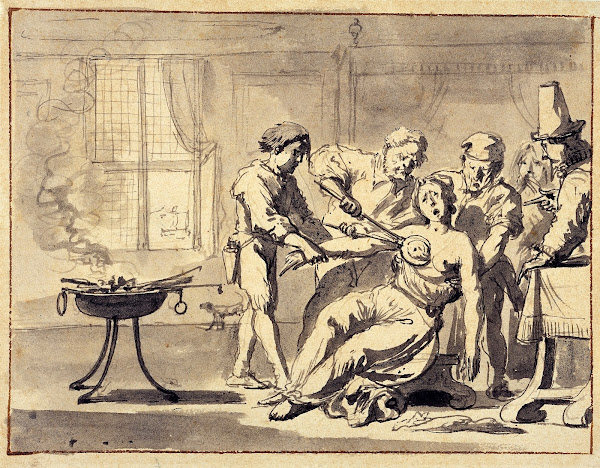What is The Comstock Act of 1873
The Comstock Act was a federal law passed by the United States Congress in 1873, named after its chief proponent, Anthony Comstock. The act aimed to suppress the circulation of obscene literature and articles of immoral use. It targeted materials that were considered to be obscene, lewd, or lascivious, as well as contraceptives, abortifacients, and information about abortion or contraception.
Under the Comstock Act, it was illegal to send such materials or information through the mail or to import them from other countries. Violators faced fines and imprisonment. The law was broadly applied and led to the suppression of not only pornographic materials but also educational materials on reproductive health, birth control, and sexuality.
The Comstock Act significantly impacted the development and distribution of birth control and reproductive health information in the United States for several decades. Over time, however, the law was challenged in court and gradually weakened. In the 20th century, various decisions by the Supreme Court and changes to state laws ultimately led to the decline of the Comstock Act's influence. By the 1960s and 1970s, access to birth control and information about reproductive health had become more widely available, and the act's remaining provisions were effectively obsolete.
Return of The Comstock Act in 2023
In February 2023, attorneys general from 20 states with conservative leadership cautioned CVS and Walgreens that they might face legal repercussions if they distribute abortion pills via mail within their jurisdictions. The majority of these states have enacted laws that broadly restrict abortion or specifically target abortion pills. The attorneys general also argued that mailing mifepristone, a medication used for medical abortions, would violate the Comstock Act.
According to a report by The Associated Press, the Comstock Act has been largely dormant in recent years. However, with the growing accessibility of abortion pills through mail-order services, anti-abortion advocates are attempting to revive the 19th-century federal law to restrict the distribution of these medications.
As the article notes, the Comstock Act's original intent was to regulate the distribution of contraceptives and obscene materials through the mail, but now anti-abortion groups and attorneys general from conservative states argue that the law could also apply to abortion pills. The renewed interest in the Comstock Act as a potential tool to restrict access to abortion pills reflects the ongoing debate surrounding reproductive rights in the United States. The article also highlights that legal experts are divided on whether the Comstock Act could successfully be used to limit the distribution of abortion pills through mail-order services.
The Comstock Act and Roe v. Wade
The Comstock Act and Roe v. Wade are connected in the sense that they both pertain to reproductive rights and access to information about reproductive health in the United States. While the Comstock Act represented an attempt to suppress such information and regulate access to birth control and abortion, Roe v. Wade marked a significant turning point in the recognition of reproductive rights as protected under the Constitution.
The Comstock Act of 1873 made it illegal to send materials related to contraception and abortion through the mail, effectively limiting the distribution of information about reproductive health and access to birth control. It represented a significant constraint on reproductive rights and reflected the moralistic attitudes of the time. Roe v. Wade, a landmark Supreme Court decision in 1973, established a woman's legal right to have an abortion under the constitutional right to privacy. This decision marked a significant shift in the legal landscape of reproductive rights in the United States, effectively invalidating many restrictive abortion laws in various states.
Although the Comstock Act primarily targeted the distribution of contraceptives and information about reproductive health, it indirectly contributed to the climate in which access to abortion was heavily regulated and stigmatized. The Roe v. Wade decision, by establishing the legal right to abortion, challenged this restrictive environment and expanded reproductive rights for women.
The Comstock Act: An In-Depth Look at Its History, Impact, and Legacy
The Comstock Act of 1873 was a federal law passed in the United States that sought to suppress the circulation of obscene literature and articles of immoral use. It had far-reaching consequences on the distribution of birth control and reproductive health information for several decades. This article will explore the origins of the Comstock Act, the reasons behind its implementation, the individuals involved in its creation, and its legislative legacy. Additionally, we will examine how the Comstock Act continues to impact Americans today.
Origins of the Comstock Act
The Comstock Act was named after its chief proponent, Anthony Comstock, a zealous moral reformer who was a key figure in the New York Society for the Suppression of Vice. Comstock was deeply concerned about the perceived moral decay of society and believed that obscene materials and contraceptives were significant contributors to this decline.
Reasons for Implementation
The primary motivation behind the Comstock Act was to protect public morals by curbing the spread of obscene materials, including pornography, and to suppress the distribution of birth control and abortion-related information. Advocates of the law believed that the presence of such materials and information posed a threat to the moral fabric of society.
Anthony Comstock and His Allies
Anthony Comstock was the driving force behind the Comstock Act. He was supported by various religious and social conservative groups that shared his concerns about the moral decay of society. Comstock's fervent campaign led to the law's passage in Congress, and he was subsequently appointed as a special agent of the U.S. Post Office, a position he used to enforce the provisions of the Comstock Act.
Who was Anthony Comstock
Anthony Comstock (1844-1915) was an American social reformer, moral crusader, and fervent anti-obscenity activist who played a key role in the passage of the Comstock Act of 1873. Born in Connecticut, Comstock fought in the Civil War and later moved to New York City, where he became deeply concerned about the perceived moral decay of society.
Comstock believed that obscene materials, including pornography and contraceptives, were significant contributors to this decline. In 1872, he became a founding member of the New York Society for the Suppression of Vice, an organization dedicated to enforcing morality and combating vice in the city.
As the chief proponent of the Comstock Act, Comstock helped draft the federal law, which aimed to suppress the circulation of obscene literature and articles of immoral use. Upon the passage of the act, he was appointed as a special agent of the U.S. Post Office, a position he used to enforce the provisions of the Comstock Act. He was granted considerable authority to search, seize, and destroy materials that he deemed to be obscene or immoral.
Throughout his career, Comstock was a controversial figure. His zealousness and tactics led to the conviction of numerous individuals, the suppression of educational materials on reproductive health, and the restriction of artistic expression. While his supporters praised his commitment to moral reform, his detractors accused him of censorship and infringement on civil liberties.
Comstock's influence waned over time as legal challenges and changing societal attitudes eroded the impact of the Comstock Act. However, his crusade against obscenity left a lasting impact on American society, and he remains a significant figure in the history of censorship and moral reform in the United States.
Legislative Impact and Challenges
The Comstock Act had significant consequences on the development and distribution of birth control and reproductive health information in the United States. The law made it illegal to send such materials or information through the mail or to import them from other countries. This led to the suppression of not only pornographic materials but also educational materials on reproductive health, birth control, and sexuality.
Over time, however, the Comstock Act faced numerous legal challenges. Various decisions by the Supreme Court, such as the 1936 United States v. One Package ruling, began to weaken the law's influence. State laws were also changed to allow for greater access to contraceptives and reproductive health information.
The Comstock Act's Legacy
By the 1960s and 1970s, the Comstock Act's remaining provisions were effectively obsolete. The landmark Supreme Court case, Griswold v. Connecticut (1965), established the constitutional right to privacy in matters of contraception, further undermining the Comstock Act's impact. Access to birth control and information about reproductive health had become more widely available, thanks to the efforts of activists like Margaret Sanger and the development of modern contraceptive methods.
Though the Comstock Act has largely been rendered ineffective, its legacy persists in ongoing debates surrounding reproductive rights and the regulation of sexually explicit materials. The act's historical impact on the suppression of reproductive health information and birth control has left a lasting mark on American society. The fight for reproductive rights and the continued debate over obscenity laws can be traced back, in part, to the Comstock Act and its far-reaching consequences.











